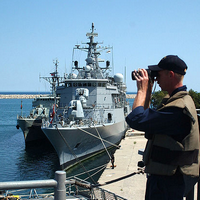Maritime issues have risen to the forefront of current regional security concerns in Asia. Indeed, many emerging non-traditional security concerns such as proliferation of weapons of mass destruction (WMD), maritime terrorism, piracy, safety and security of sea lines of communication, smuggling (of arms, drugs and humans), illegal fishing and marine pollution are all essentially maritime issues. Some of them provide opportunities for multilateral maritime security cooperation when supporting factors coincide and are mutually reinforcing. The cooperative anti-piracy effort off the coast of Somalia, the loose and fragile 2002 ASEAN Declaration on the Conduct of Parties in the South China Sea, and the two-tiered cooperative framework regarding the safety of the Malacca Strait are examples of successful multilateral maritime security efforts. However, they are the rare exceptions, rather than the rule. An examination of the Proliferation Security Initiative will help explain how the complex politics of multilateral maritime security approaches often interferes with the success of such efforts.
The Proliferation Security Initiative, proposed by President George W. Bush in May 2003, is an interdiction "activity" intended to prevent the spread of weapons of mass destruction (WMD), their delivery systems and related materials from entering or leaving "states of proliferation concern." It operates outside the U.N. system and instead relies heavily on a "coalition of the willing."
Judging from the claims of its founders and principal architects, one would think that it is the best and most effective non-proliferation tool since the Nuclear Non-Proliferation Treaty. To be fair, the PSI has improved the awareness of the danger and of trade in WMD and the urgency of stopping it. And the focus on interdiction has probably constrained some trade in WMD as well as their delivery systems and related materials, or at least forced traders to change their tactics. PSI-driven training exercises have increased national capacities for coordinated detection and interdiction of suspected shipments. Moreover, as a result of the initiative, flag state consent for boarding to search for WMD has become a consensus expectation, although not a legal obligation. Perhaps most important, PSI has evolved and metamorphosed from a focus on interdiction of ships at sea, to now include inspection in ports, transportation of WMD by aircraft, and disruption of financial networks that support such trafficking.

